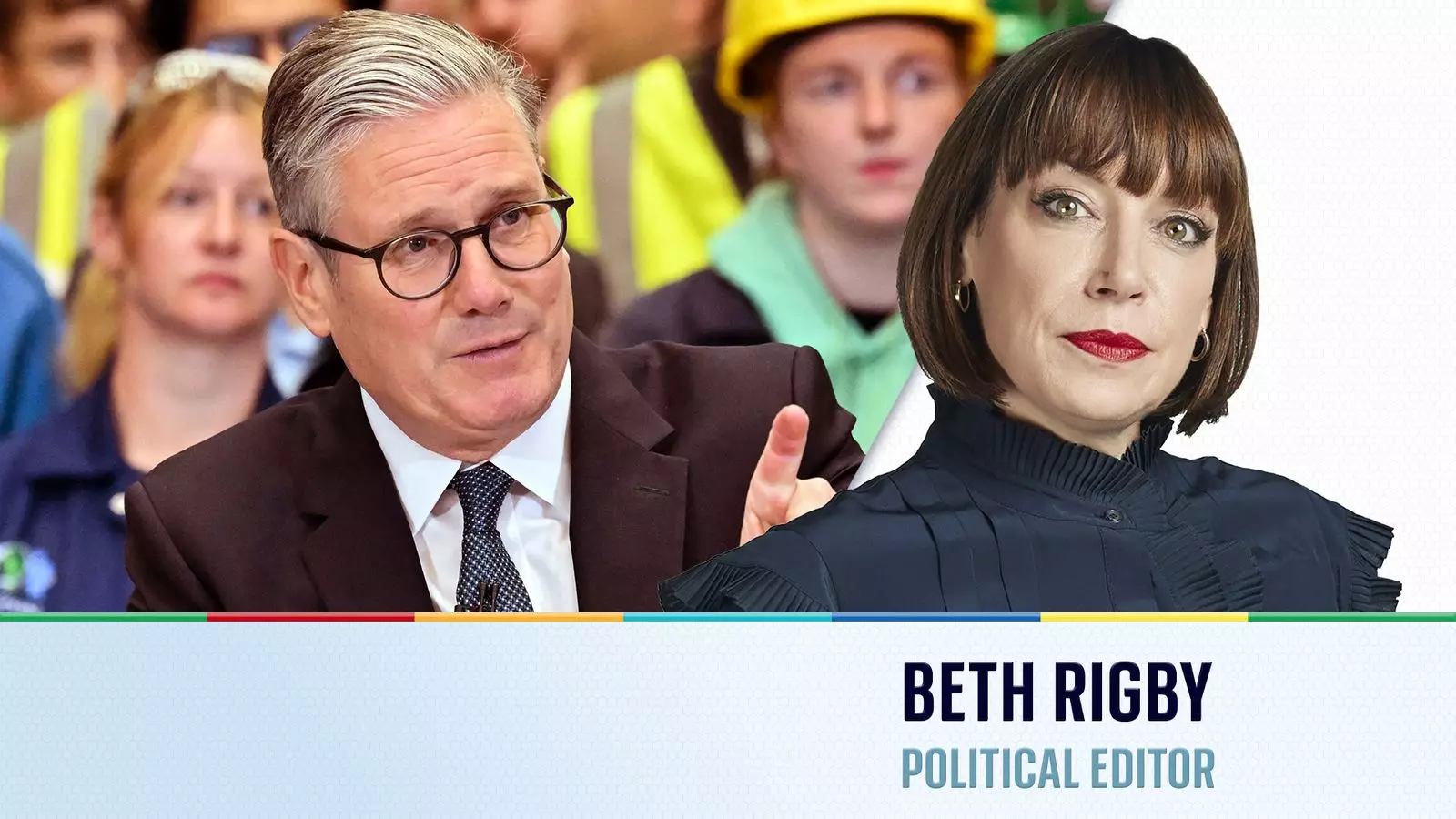The recent pronouncements from Sir Keir Starmer have sent ripples through the political landscape of the United Kingdom, signaling a marked shift in the Labour Party’s focus. In a strikingly bold move that channels the spirit of Clement Attlee, the Labour PM who once laid the foundation of the welfare state, Starmer is now positioning himself as the architect of a new warfare-ready state. On the surface, this pivot might seem strategic, a reflection of a world increasingly fraught with geopolitical tensions. But peel back the layers, and one discovers a murky contradiction: can a government that promotes military readiness truly fulfill its promises to enshrine the welfare of its citizens?
At a recent event in Glasgow, Starmer articulated a stark message: the UK faces threats that are, in his estimation, more pressing than the Cold War era. This language of urgency—tinged with militaristic undertones—aims to galvanize the public around the notion that every citizen has a role to play in national defense. For a leader who criticized “sticking plaster politics,” it raises the question of why he puts forth such bold assertions without clearly articulating how to fund his ambitious defense review without sacrificing the social safety nets that many citizens rely on.
The Economic Balancing Act
Starmer’s commitment to ramp up defense spending to 3% of GDP, while laudably ambitious, lacks the foresight to address how this scale of investment will coexist with vital social services, especially in a post-pandemic recovery landscape. A few billion pounds here and there may not seem insurmountable in the grand economic scheme, but when crucial programs like winter fuel allowances are on the chopping block, the stakes become alarmingly high.
The prime minister claims his fiscal decisions hinge on “economic and fiscal conditions,” which feels like a political deflector. Voters can be forgiven for feeling bewildered: does Starmer prioritize their safety through military might, or will he relent to rising pressure and return critical funds to social programs? The reluctance to specify how he will balance these competing priorities seems disingenuous, casting shadows of inconsistency over his leadership.
Promise vs. Reality
Historically, Labour has been synonymous with welfare and social responsibility, a party grounded in the principles of equity and community care. Now, under Starmer’s directive, we see an ambitious shift towards militarization—a interpretation of national readiness that feels increasingly alarmist and misguided. Historical savvy tells us that the strength of a nation isn’t merely found in its arsenal but rather in the health and well-being of its citizens. Does he truly believe potential military readiness will resonate more with voters than the restoration of vital social funding?
Moreover, with cuts looming over winter fuel allowances and the potential reconsideration of the two-child benefit cap, the electorate faces a troubling dichotomy. One must wonder: is this the beginning of a “military-first” agenda that sacrifices the vulnerable under the guise of national security? Labour’s roots suggest otherwise, and Starmer’s apparent willingness to forsake welfare for warfare strikes at the heart of what the party has historically stood for.
The Liberal Quandary
As a centrist liberal, one can find it troubling to witness these currents shift. The narrative of a warfare state isn’t merely about defense against external threats; it begs the larger question of societal coherence. As citizens, do we want to live in a society defined more by its military readiness than by its commitment to social well-being? Surely, history has shown us that the strongest nations are built on the pillars of opportunity, inclusivity, and care for the less fortunate, rather than with stockpiles of weapons.
Starmer’s balancing act could define the Labour Party’s future. The political philosophy that bolstered the welfare state must not be abandoned in favor of an intimidating posture that could alienate core constituents. The electorate demands clarity and steadfastness amid uncertainty. The Labour Party must not lose sight of its foundational values while navigating this new narrative of warfare readiness. A true leader should enhance both the security of the nation and the welfare of its people, finding synergy, not division, between the two.


Leave a Reply